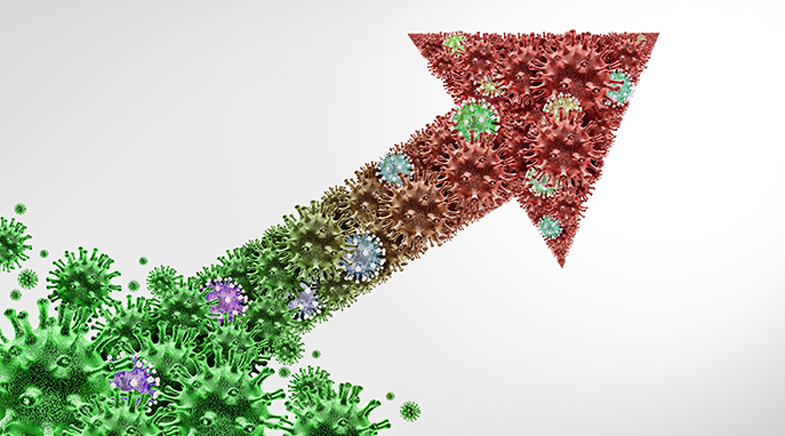It's not all in the genes
-
- from Shaastra :: vol 03 issue 01 :: Jan - Feb 2024

The case for an overhaul of Mendelian genetics education.
In the award-winning comedy show The Marvelous Mrs. Maisel, set in the 1950s onwards, retired math professor Abe Weissman is highly upset to find that his grandson is in the 'happy group' at school, instead of the math, engineering or astronomy group. Abe blames his (ex-) son-in-law Joel Maisel for this ruining of his "bloodline".
When Joel had married Abe's daughter, Abe had declared to him that "Weissman boys are born with immense intellect", and proudly showed him a book of "every generation of first-born Weissman men and their accomplishments". "We've got doctors, lawyers, scientists, kings... writers, an archaeologist, one very creative murderer," he emphatically stated. When Joel objected that his "first-born won't be a Weissman... He'll be a Maisel", Abe brushed it aside, saying that his daughter "is a Weissman. Her genes will overwhelm your genes".
Such simplistic – even silly – ideas of genetic inheritance, be it in a fictional TV show or real life, somehow all originate with the 19th-century monk and experimentalist Gregor Mendel.
Experimenting with the garden pea, Mendel had discovered dominance and recessiveness in hybrid plants. When he crossed pea plants that produced purple flowers, for instance, with plants bearing white flowers, the resulting hybrids produced purple flowers.
The next generation of plants (from self-fertilising of the hybrids), however, had both purple and white flowers in a ratio of 3:1. Mendel labelled the character that had transmitted to the hybrids as 'dominant' (purple) and the character that had disappeared in the hybrids only to reappear in the next generation as 'recessive' (white). He observed that the 3:1 dominant-to-recessive ratio was true of other differentiating characters he studied (seed shape – round or wrinkled; length of stem – long or short; and so on).
REDISCOVERING MENDEL
Mendel's work did not gain recognition while he was alive, as opposed to today when an introduction to genetics in classrooms and textbooks opens with Mendel and his peas. Disputed Inheritance is about what came after Mendel. The book features those who rediscovered his work in 1900 and those who made Mendel famous, by either accepting or questioning Mendelian inheritance.

Two such biologists featured prominently in the book are William Bateson, "the leading Mendelian" who coined the term 'genetics' for the science of heredity in 1905, and W.F.R. Weldon, who took Mendel's results with a pinch of salt.
Where Mendelians like Bateson saw Mendel's patterns in plant and animal characters, Weldon saw exceptions. The argument on the two sides turned into a full-blown battle and led to a public falling out of the duo who had started out as friends. Bateson won in the end by default: Weldon died when he was on the verge of publishing an alternative theory of inheritance.
A FRESH PERSPECTIVE
While the first section of the book traces the beginnings of a science of heredity and the middle section focuses on the Bateson-Weldon battle, the final section argues the case for a Weldonian curriculum. Instead of beginning with Mendel, such a curriculum would focus on how much ancestry, variation and the environment matter in the functioning of genes to drive home "the message that genes have the effects that they do on bodies only in developmental and, more broadly, environmental contexts".
To back up the case, the book cites an experiment that ran for two years at the University of Leeds, showing that the views of students on the exaggerated role of genes remained the same before and after taking a traditional Mendelian course. Whereas students who took a Weldonian curriculum assigned less importance to the power of genes.
Citing other examples, the author goes on to suggest that a Weldonian genetics education might result in other benefits by enabling students to counter sexism, racism and other prejudices in science and society.
Perhaps, then, as the author says: "It is time for the simplifications of Mendelian storytelling to become history."
Have a
story idea?
Tell us.
Do you have a recent research paper or an idea for a science/technology-themed article that you'd like to tell us about?
GET IN TOUCH














